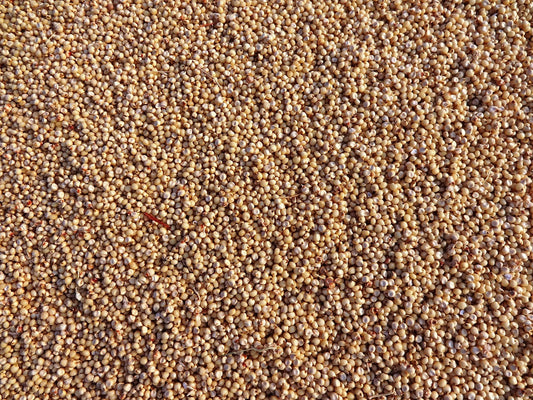
Let's face it: navigating the world of nutrition can be overwhelming. With so many trends and fad diets out there, it's hard to know what's really good for us. But one thing is clear: ultra-processed foods are a major contributor to many of the health problems we're facing today. In this article, we'll take a closer look at what ultra-processed foods are, how they impact our health, and most importantly, what we can do to reduce our consumption of these foods.
What are Ultra-Processed Foods?
Ultra-processed foods are foods that have been heavily altered from their natural state. They often contain a long list of ingredients that you wouldn't typically find in whole foods. These foods are designed to be convenient, affordable, and appealing, but they come with a cost. As Samuel Dicken, a clinical scientist and doctoral researcher at University College London, explains, "Ultra-processed foods are everywhere. They're cheap, convenient, and heavily marketed. Examples include sugary drinks, ready meals, savory snacks, breakfast cereals, and plant-based alternatives."
The Risks of Ultra-Processed Foods
Research has consistently shown that consuming high amounts of ultra-processed foods is linked to an increased risk of various health problems, including cancer, heart disease, metabolic syndrome, nonalcoholic fatty liver disease, and type 2 diabetes, as highlighted in a systematic review and meta-analysis published in the BMJ. A recent study published in The Lancet Regional Health – Europe found that every 10% increase in ultra-processed food intake was associated with a 17% higher risk of developing type 2 diabetes. Another study published in the BMJ found that eating larger amounts of ultra-processed foods was associated with a greater risk of 32 adverse health outcomes.
The Impact of Ultra-Processed Foods on Type 2 Diabetes
The study published in The Lancet Regional Health – Europe, which analyzed data from almost 312,000 people from eight European countries, found that replacing ultra-processed foods with less processed foods was associated with a lower risk of type 2 diabetes. Specifically, substituting 10% of ultra-processed foods in a person's diet with 10% of minimally processed foods or processed culinary ingredients reduced type 2 diabetes risk by 6%, and substituting 10% of ultra-processed foods in the diet with 10% of processed foods reduced diabetes risk by 8%. This study highlights the importance of considering the overall dietary pattern, rather than just focusing on individual foods. This means that even if you're consuming some ultra-processed foods, you can still reduce your risk of type 2 diabetes by incorporating more whole, nutrient-dense foods into your diet.
Why Ultra-Processed Foods are a Problem
So, why are ultra-processed foods a problem? According to Noa Tal, a board-certified endocrinologist, "The results are consistent with existing research that highlights the significant impact of ultra-processed foods on metabolic, cardiac, and neurological health." Tal believes that there are several important avenues for further investigation, including understanding the mechanisms by which ultra-processed foods contribute to weight gain and type 2 diabetes.
Breaking Free from Ultra-Processed Foods
So, what can you do to reduce your consumption of ultra-processed foods? Here are some tips from Monique Richard, a registered dietitian nutritionist:
- Get real about why you're reaching for ultra-processed foods: Is it convenience, financial limitations, or a preference for certain foods? Once you understand your motivations, you can start making changes.
- Take a closer look at your eating habits: Pay attention to how often you're consuming fruits and vegetables, how often you're eating meals and snacks from packaging, and how frequently you're consuming meals from fast-food drive-throughs.
- Learn to cook from scratch: If you don't know how to cook, start learning. Cooking from scratch can help you avoid ultra-processed foods.
- Pack your own breakfast and lunch: Avoid relying on packaged foods for your meals.
- Fill your plate with fiber-rich foods and healthy fats: These foods will keep you fuller for longer and reduce your cravings for ultra-processed foods.
- Eat foods that take a while to chew: Foods like salads, whole grains, and whole fruits and vegetables can help improve nutrient absorption.

Nataliya Vaitkevich // Pexels
Taking Control of Your Health
Ultra-processed foods are a major contributor to many of the health problems we're facing today. By understanding what ultra-processed foods are, how they affect our health, and taking steps to reduce our consumption of these foods, we can take control of our health and well-being. It's not about cutting out all processed foods entirely, but about making informed choices and opting for whole, nutrient-dense foods whenever possible.




